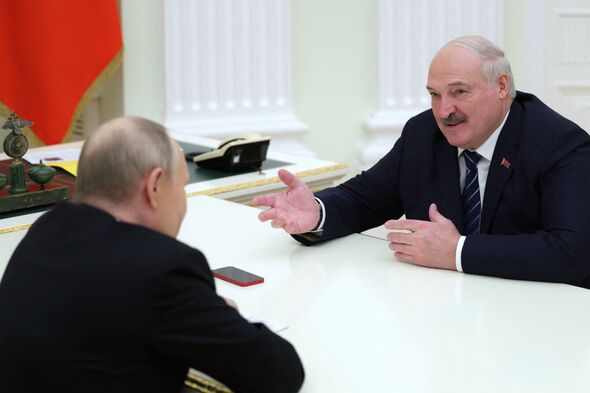Tensions between Belarus and Lithuania escalated on Thursday after a top security official in Belarus claimed that his country had thwarted attempted drone strikes from Lithuania targeting the Belarusian capital and its surrounding areas.
The claim was swiftly dismissed by Lithuanian authorities, who termed it “nonsense”.
Ivan Tertel, head of the Belarusian Committee for State Security (KGB), announced at a session of the All-Belarusian People’s Assembly that recent security operations had “prevented attacks by combat drones from the territory of Lithuania on objects in Minsk and its suburbs”.
However, he provided no evidence to support his assertion and declined to offer further details. Tertel also alleged that “radicals” in Lithuania and Poland were producing drones with the intent to attack Belarus.
Lithuania quickly refuted the claims, with military spokesman Gintautas Ciunis telling journalists: “This is nonsense; I can’t find another word.”
The Lithuanian crisis management center also issued a statement dismissing the claim, suggesting that it was aimed at a domestic audience in Belarus and could be seen as “a continuous hostile provocation and an informational attack against Lithuania, which has nothing to do with reality.”
Belarus, a close ally of Russia, has been hosting Russian tactical nuclear weapons, missiles, and troops. While Belarusian forces have not directly entered the Russia–Ukraine war, the country served as a launch point for Russian forces entering northern Ukraine.
Belarusian opposition leader Sviatlana Tsikhanouskaya, who is exiled in Lithuania, remarked that aside from the Belarusian leadership, no one had heard about any drone attacks on Minsk. She added: “It is possible that Lukashenko started believing his own nonsense and disinformation.”
On Thursday, the All-Belarusian People’s Assembly unanimously approved a new national security framework and a military doctrine proposed by President Alexander Lukashenko, which regulates the use of Russian nuclear weapons. Lukashenko stated that these measures would enable Belarus “to resist any aggressor and inflict irreparable damage on them”.
Political analysts suggest that Lukashenko’s rhetoric is meant to curry favour with Russia, which has been providing significant support to his regime. Valery Karbalevich, an independent Belarusian analyst, told the Associated Press that “Lukashenko is increasing the level of bellicose rhetoric in order to please the Kremlin and receive additional funds to fight the ‘common Western threat’”.
Karbalevich added: “Belarus has hosted Russian nuclear weapons, changed its military doctrine, and now expects payment from the Kremlin for this, and Lukashenko’s loud statements should serve as a reminder of this.”
